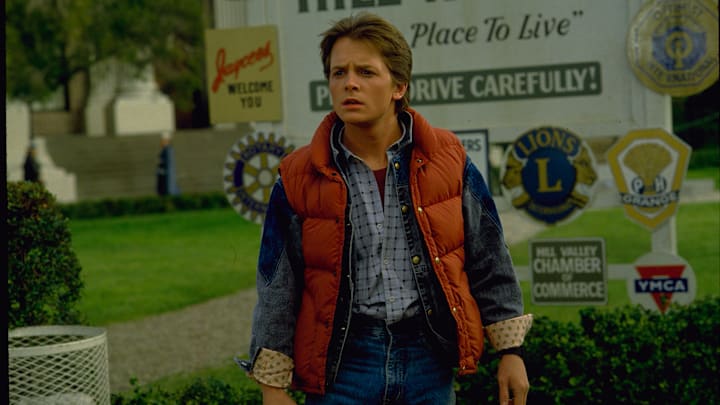Since its first installment hit cinema screens in July 1985, the Back to the Future trilogy has ascended to legendary status. If anything, the trilogy has only become even more beloved in the last four decades, and one of its leading men knows exactly why the story continues to resonate with new generations of fans.
While Michael J. Fox was already a star going into Back to the Future, the comedy sci-fi saga propelled him to a new level of fame as he brought Marty McFly to life on the big screen. His performance alongside Christopher Lloyd as Dr. Emmett "Doc" Brown helped create one of the most iconic cinematic duos of all time. That said, Fox cites a different reason other than his chemistry with Brown for why Back to the Future is the franchise that refuses to become irrelevant.

Fox thinks 'bully culture' is what keeps the love for Back to the Future alive
Speaking with Empire about Back to the Future's continued success after 40 years, Michael J. Fox explained that he thinks the underlying theme of bullies is a big reason for why the movies are still so heavily revered. "Beyond the sheer adventure of it," Fox said, "we live in a bully culture right now. We have bullies everywhere." Fox doesn't directly "point a finger" at a specific bully, so I'll leave it to your imagination when it comes to who he's talking about.
Fox goes on to identify Thomas F. Wilson's Biff Tannen as one of BTTF's biggest bullies, but also interestingly points out that time itself could also be considered a bully. I hadn't really considered it before, but time being perceived as a bully is incredibly poignant, and strangely deep for what is essentially a lighthearted time travel adventure.
Fox's comments imply that fans are still watching Back to the Future because they enjoy seeing Marty and the Doc come out on top when forced to go toe-to-toe against these bullies, despite the odds not being in the good guys' favor. Instead, the protagonists have to rely on their own resilience and emotional stamina to get what they want, which creates a powerful and timeless message.
The actor also gave a very personal example that ties the theme of bullies into his own life and challenges. He describes Parkinson's disease as a bully, a condition that he has lived with for decades. Putting such a battle into context makes Back to the Future's stealth focus on bullies stand out even more and makes it especially emotional. It also shows how broad the trilogy's message can be applied, and why it continues to be viewed so far into the 21st century.

Back to the Future's time travel lore is also a big reason why the franchise lives on
Michael J. Fox makes a great point about Back to the Future's longevity, but the trilogy's temporal mechanics shouldn't be ignored either. Although it definitely wasn't the first time travel saga, it was one of the most complex and well-thought-out storyline of its kind when it was released. Even today, there aren't many movies or TV shows that can give Back to the Future a run for its money in this respect.
Although there are many ongoing debates about Back to the Future plot holes or paradoxes, they're either easy to forgive or just as easy to explain away with sci-fi logic. The entire trilogy is an almost-perfectly woven web built from rules of its own design. It all holds up today, if you ignore how the "future" looks compared to how it turned out in the real world. Even then, it all still feels consistent with Back to the Future's larger sense of wonder.
